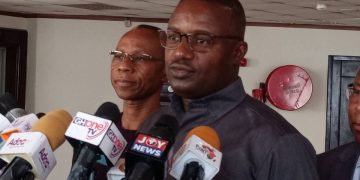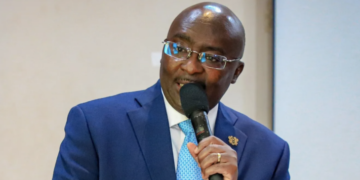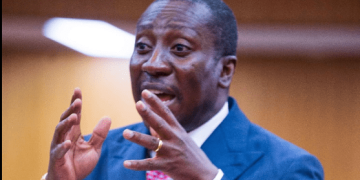The Majority Chief Whip in Parliament is advocating the empowerment of parliamentarians to take a frontal role in the climate diplomacy and governance strategies of developing African countries.
This, he said, has become imperative as the focus of the energy transition shifts towards resilient policy framework designs.
“This should be seen in collaborative climate policy enactments that create a holistic African climate policy regime that prioritizes similar energy transition projects to attain a net effect,” he stated.
The Whip, also the MP for Nsawam Adoagyiri, Hon. Frank Annoh-Dompreh made the call in a statement he read in Parliament on the 27th Conference of the Parties of the UNFCCC (COP 27) slated for Egypt in November.
COP27, nicknamed the African COP is set to build on previous success and serve as an opportunity for stakeholders to effectively tackle the global challenge of climate change and pave the way for future ambition.
He argued that African countries continue to disproportionately face the brunt of climate change although they contribute little to it.
“The event also comes as the continent reels from several extreme weather events such as drought and destructive floods, thus increasing the threat of food insecurity.”
“Africa contributes only 3 per cent to greenhouse gas emissions but suffers disproportionately from its negative impacts,” and cited Cape Verde and Mauritania where less rain continues to fall as examples.
The Majority Whip stressed that Africa has been losing from 5 to 15% of its GDP per capita growth because of climate change and its related impacts, but needs about $1.6 trillion between 2022 and 2030 to meet its nationally determined contributions.
“Climate change in Africa is an increasingly serious threat and hence categorizes Africa as one of the most vulnerable continents to the effects of climate change. This vulnerability is driven by a range of factors that include weak adaptive capacity, high dependence on ecosystem goods for livelihoods, and less developed agricultural production systems.”
“The risks of climate change on agricultural production, food security, water resources and ecosystem services will likely have increasingly severe consequences on lives and sustainable development prospects in Africa.”
Hon. Anna-Dompreh argued that COP27 must therefore deliver climate adaptation finance at scale and stressed that adaptation is Africa’s biggest challenge.
He averred that Africa’s priority in the current challenge is to pursue a number of actions including building the capacity of for local population on energy transition including the role they can play.
This, he said, should sensitize the population on the national and sub-national levels on the advantages of renewable energy and efficiency practices and opportunities for their engagement.
He added, “Build capacity of parliamentarians and parliamentary technical staff to enhance their understanding and engagement in climate diplomacy, negotiations, policy frameworks, their role in climate policy and over-sighting investments and exploitation of natural resources as well as government efforts in implementing climate actions, including NDCs and NAP,”



















































































